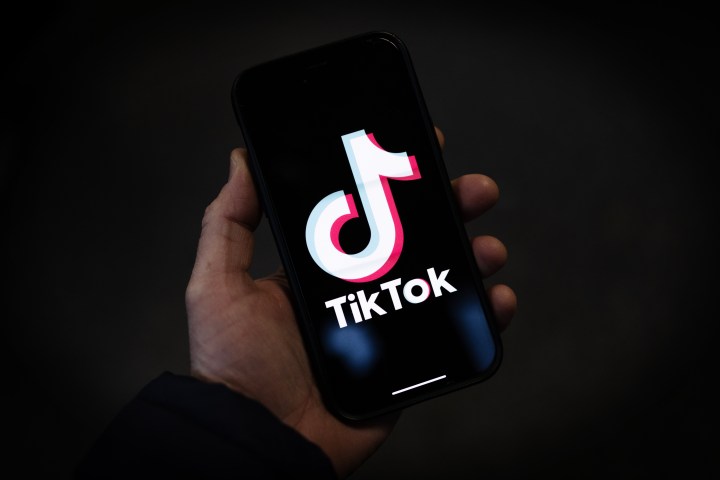THE CONVERSATION
TikTok fears point to larger problem: Poor media literacy in the social media age

If the US wants to protect young people from misinformation and foreign influence, focusing on TikTok is barking up the wrong tree.
The US government moved closer to banning the video social media app TikTok on 24 April 2024 after President Joe Biden signed into law a $95 billion foreign aid bill. The law includes a provision to force ByteDance, the Chinese company that owns TikTok, to either sell its American holdings to a U.S. company or face a ban on the app in the country.
TikTok has said it will fight any effort to force a sale.
The proposed legislation was motivated by a set of national security concerns. For one, ByteDance can be required to assist the Chinese Communist Party in gathering intelligence, according to the Chinese National Intelligence Law. In other words, the data TikTok collects can, in theory, be used by the Chinese government.
Furthermore, TikTok’s popularity in the United States, and the fact that many young people get their news from the platform – one-third of Americans under the age of 30 – turns it into a potent instrument for Chinese political influence.
Indeed, the US Office of the Director of National Intelligence recently claimed that TikTok accounts run by a Chinese propaganda arm of the government targeted candidates from both political parties during the US midterm election cycle in 2022, and the Chinese Communist Party might attempt to influence the US elections in 2024 in order to sideline critics of China and magnify US social divisions.
To these worries, proponents of the legislation have appended two more arguments: It’s only right to curtail TikTok because China bans most US-based social media networks from operating there, and there would be nothing new in such a ban, since the US already restricts the foreign ownership of important media networks.
Some of these arguments are stronger than others.
China doesn’t need TikTok to collect data about Americans. The Chinese government can buy all the data it wants from data brokers because the US has no federal data privacy laws to speak of. The fact that China, a country that Americans criticize for its authoritarian practices, bans social media platforms is hardly a reason for the US to do the same.
I believe the cumulative force of these claims is substantial and the legislation, on balance, is plausible. But banning the app is also a red herring.
In the past few years, my colleagues and I at UMass Boston’s Applied Ethics Center have been studying the impact of AI systems on how people understand themselves. Here’s why I think the recent move against TikTok misses the larger point: Americans’ sources of information have declined in quality and the problem goes beyond any one social media platform.
The deeper problem
Perhaps the most compelling argument for banning TikTok is that the app’s ubiquity and the fact that so many young Americans get their news from it turns it into an effective tool for political influence. But the proposed solution of switching to American ownership of the app ignores an even more fundamental threat.
The deeper problem is not that the Chinese government can easily manipulate content on the app. It is, rather, that people think it is OK to get their news from social media in the first place. In other words, the real national security vulnerability is that people have acquiesced to informing themselves through social media.
Social media is not made to inform people. It is designed to capture consumer attention for the sake of advertisers. With slight variations, that’s the business model of all platforms. That’s why a lot of the content people encounter on social media is violent, divisive and disturbing. Controversial posts that generate strong feelings literally capture users’ notice, hold their gaze for longer, and provide advertisers with improved opportunities to monetize engagement.
There’s an important difference between actively consuming serious, well-vetted information and being manipulated to spend as much time as possible on a platform. The former is the lifeblood of democratic citizenship because being a citizen who participates in political decision-making requires having reliable information on the issues of the day. The latter amounts to letting your attention get hijacked for someone else’s financial gain.
If TikTok is banned, many of its users are likely to migrate to Instagram and YouTube. This would benefit Meta and Google, their parent companies, but it wouldn’t benefit national security. People would still be exposed to as much junk news as before, and experience shows that these social media platforms could be vulnerable to manipulation as well. After all, the Russians primarily used Facebook and Twitter to meddle in the 2016 election.
Media and technology literacy
That Americans have settled on getting their information from outlets that are uninterested in informing them undermines the very requirement of serious political participation, namely educated decision-making. This problem is not going to be solved by restricting access to foreign apps.
Research suggests that it will only be alleviated by inculcating media and technology literacy habits from an early age. This involves teaching young people how social media companies make money, how algorithms shape what they see on their phones, and how different types of content affect them psychologically.
My colleagues and I have just launched a pilot program to boost digital media literacy with the Boston Mayor’s Youth Council. We are talking to Boston’s youth leaders about how the technologies they use everyday undermine their privacy, about the role of algorithms in shaping everything from their taste in music to their political sympathies, and about how generative AI is going to influence their ability to think and write clearly and even who they count as friends.
We are planning to present them with evidence about the adverse effects of excessive social media use on their mental health. We are going to talk to them about taking time away from their phones and developing a healthy skepticism towards what they see on social media.
Protecting people’s capacity for critical thinking is a challenge that calls for bipartisan attention. Some of these measures to boost media and technology literacy might not be popular among tech users and tech companies. But I believe they are necessary for raising thoughtful citizens rather than passive social media consumers who have surrendered their attention to commercial and political actors who do not have their interests at heart. DM
First published by The Conversation. Nir Eisikovits is a Professor of Philosophy and Director at the Applied Ethics Center, UMass Boston.
This article was updated to indicate that President Biden signed into law the bill containing the TikTok measure on 24 April 2024.


















Thank you Nir, and good luck with your pilot.
I agree, about media literacy. Something must be done. Most parents I know feel ill equipped to manage this runaway train. It doesn’t help that the young are thought of as ‘social media experts’, having grown in the age of free, unvetted expression. Older generations often feel intimidated, younger parents may also be part of the social media generation. So kids are mostly on their own at the mercy of vultures.
But I think there’s a push and pull situation going on here. Business pills the young/vulnerable in, main stream media distrust pushes them towards.
We have to remember the genesis of this significant lean towards social media for the young…e.g., post Arab spring social media was celebrated as the ‘democratic and and instant news’ outlets. The US in particular distrusts mainstream media, rightly or wrongly. So that distrust (causes etc) of main stream media must also be attended to.
Good article and a very important project. Not a project I see as likely to succeed, unfortunately, but far better to do something than nothing.
The root of the problem lies in the formal education space, and began decades back.
Although the problem may have begun festering around the time the “online connected world” began to form it does not mean I am saying “the internet” or “social media” is the cause, or is necessarily “evil”.
The problem is that decades back education began failing in the main function it should perform.
One needs only look at the statistics of how few of the current (and younger) generations are fully literate, can read for meaning, and have developed critical thinking skills.
Now, sadly, there are many without these skills who are influencing the ideas and beliefs of the youngest (and even the no longer quite so young) .
These influences are the “content generators” of this world, who are mistakenly considered to be “celebrities”.
Mankind has developed an instant gratification mindset, always on the lookout for the next flashy, attention-grabbing trend but unable to actually decide for themselves if it is in any way important, meaningful, or indeed real.
The advent of AI will simply accelerate this problem.
Even those who prefer the “real media” rather than social media are not immune to the onslaught, as there are an ever-growing number of (supposedly) “real journalists” who produce articles either quoting social media as their “reliable source”.